77. Eye Health and Economic Growth: A Vision Worth Investing In... w/ Jack Hennessy
In the intricate world of health economics, where resource optimization and accessibility to healthcare services are crucial, eye health stands as a beacon of affordability and effectiveness. Jack Hennessy, a prominent health economist, sheds light on the vital role health economics plays in achieving universal health coverage and how something as simple as improving vision can lead to significant global development impacts.
What is Health Economics?
Health economics is a specialized field that studies the allocation of scarce resources in healthcare. People often associate economics with monetary resources, but in this context, resources like healthcare services are equally critical. Health economists aim to enable universal health coverage, ensuring everyone, regardless of financial status, can access essential health services. Hennessy emphasizes that eye health interventions, such as cataract surgeries and refractive error treatments, are among the most cost-effective procedures globally, profoundly influencing healthcare accessibility.
Why Eye Health?
The potential impact of eye health on quality of life and economic productivity is immense. A quick cataract surgery or a pair of glasses can remarkably enhance someone's ability to work, socialize, and perform daily activities. This surpasses the impact of many other health interventions, making eye health a top priority in regions where healthcare resources are limited. Hennessy illustrates how cataract surgeries, that take as little as eight minutes, can transform a visually impaired person's life, enabling them to see again, participate in the workforce, and interact socially.
The Economic Perspective
The link between eye health and economic prosperity is undeniable. Investing in eye health can boost a country's economy significantly. Governments and policy-makers often focus on short-term returns within their administrative tenure, undervaluing the long-term economic benefits of eye health. Studies reveal that improved vision leads to increased labor force participation, better productivity, and educational attainment, thereby fostering economic growth. A remarkable example Hennessy points out is a 20.5 to 1 return on investment from cataract surgeries in various countries, highlighting the economic sense in prioritizing these interventions.
Challenges and Innovations in Eye Health Financing
Beyond schools, family involvement is pivotal. Parents are encouraged to engage in activities that promote mindfulness and emotional health among children. Simple practices like playing outdoors, hiking, or mindful breathing exercises can significantly bolster a child's emotional wellbeing and provide a foundation of love and attention necessary for stress management.
The Case of the Fred Hollows Foundation
The legacy of Fred Hollows, an ophthalmologist committed to equitable healthcare, continues to inspire initiatives like the Fred Hollows Foundation. Hennessy highlights their mission to eliminate avoidable blindness and vision impairments globally. By establishing intraocular lens manufacturing sites and training local ophthalmologists, the Foundation significantly lowered cataract surgery costs, making them accessible to more people worldwide.
The Bigger Picture
Eye health is not just a healthcare issue; it's a development issue. Beyond the health of individuals, it affects educational outcomes, economic productivity, and social well-being. Hennessy calls for a broader understanding of eye health as an essential component of global development. By recognizing the value of vision care and its ripple effects, we can ensure these life-changing treatments are prioritized, benefiting individuals and economies alike.
Resources & Links
Transforming Lives – an Investment Case for Eye Health (https://www.hollows.org/research-and-guides/investment-case-for-eye-health/) This report modelled the return on investment associated with investing in eye health – showing that investing in eye health provides some of the greatest return on investment of any disease intervention in the world.
Abell, R.G. and Vote, B.J., 2014. Cost-effectiveness of femtosecond laser-assisted cataract surgery versus phacoemulsification cataract surgery. Ophthalmology, 121(1), pp.10-16. Although a relatively dense scientific article – this shows that cataract surgery is one of the most cost-effective health interventions in the world.
Fred Hollows: An Autobiography (Fred Hollows and Peter Corris) Fred’s autobiography that tells his story, what he started, his ambition to see a world where no one was needlessly blind or visually impaired, and the incredible technological and cost-saving changes he made to the sector.
The Life You Can Save (Peter Singer) A fascinating book that discusses the perils of cost-effectiveness analysis (amongst many other things) and why The Fred Hollows Foundation has taken such a rigorous approach to demonstrating impact.
Jack is a senior health economist with over ten years of experience in health economics research, policy, and evaluation. Jack has undertaken health economic analysis and provided technical advice for some of Australia’s largest health programs and led health economics research and design for eye health projects across South Asia, South-East Asia, Africa, and the Pacific.
Jack’s work has focused on ensuring access to eye healthcare for some of the world’s most vulnerable populations, through innovative social protection and health insurance mechanisms designed in collaboration with National Governments. More broadly, his research has focused on the dynamics of international development aid and how donors, recipient governments, and aid beneficiaries can work together to achieve sustainable success.
He has been published in leading international health economics journals including Social Science and Medicine, the Patient, and the Journal of the Royal Statistical Society as well as acting as a reviewer for prominent publications. Jack holds dual bachelor’s degrees in biomedical science and economics (honours, first class) and has been completing a PhD at Monash University’s Centre for Health Economics.




